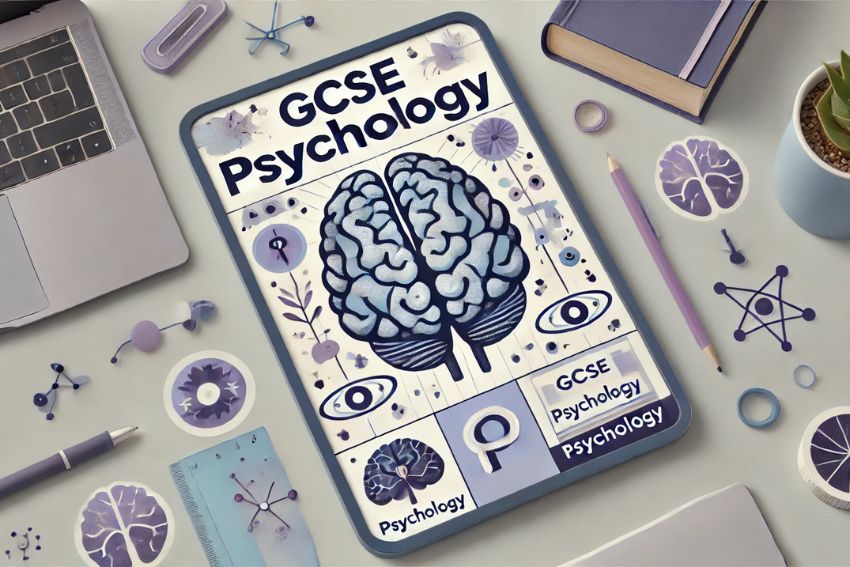AQA GCSE German
| Years | Question Papers | Assessment |
| November 2020 | Higher Tier Listening Paper 1 | Mark Scheme |
| November 2021 | Foundation Tier Writing Paper 4 | Mark Scheme |
| June 2022 | Higher Tier Reading Paper 3 | Mark Scheme |
| June 2023 | Foundation Tier Listening Paper 1 | Mark Scheme |
| June 2024 | Foundation Tier Listening Paper 1 | Mark Scheme |
These German AQA past papers are invaluable resources for students preparing for listening, reading, and writing assessments. Practising with them helps students familiarise themselves with exam formats and refine their language skills.
Pearson Edexcel GCSE German
| Years | Question Papers | Assessment |
| November 2020 | Foundation Tier Listening Paper 1F | Mark Scheme |
| November 2021 | Higher Tier Reading Paper 3H | Mark Scheme |
| June 2022 | Foundation Tier Listening Paper 1F | Mark Scheme |
| June 2023 | Higher Tier Reading Paper 3H | Mark Scheme |
| June 2024 | Foundation Tier Writing Paper 4F | Mark Scheme |
For students following the Edexcel syllabus, these GCSE German past papers Edexcel are essential for targeted revision. Regular practice helps improve listening comprehension, reading skills, and written accuracy.
WJEC Eduqas GCSE German
| Years | Question Papers | Assessment |
| November 2018 | Foundation Tier Listening Unit 2 | Mark Scheme |
| November 2019 | Higher Tier Writing Unit 4 | Mark Scheme |
| June 2022 | Higher Tier Writing Unit 4 | Mark Scheme |
| June 2023 | Higher Tier Reading Unit 3 | Mark Scheme |
| June 2024 | Foundation Tier Listening Unit 2 | Mark Scheme |

Past papers are essential study tools for any language exam preparation. While this guide focuses on German resources, students pursuing multiple languages may also find GCSE Spanish past papers collection equally valuable for their language studies.
Using a combination of German AQA past papers, GCSE German past papers Edexcel, and AQA AS-level resources ensures thorough preparation across all exam components.
FAQs:
Should I Take GCSE German?
Deciding whether to take GCSE German or not depends on several factors, which I’ll outline below:
Interest
Do you enjoy learning German? Are you interested in the German culture, history, literature, or perhaps considering visiting or studying in Germany in the future? If you’re passionate about language learning in general, then German could be a good choice.
Career Goals
Do you have specific career aspirations that might benefit from knowledge of a second language like German? For instance, many multinational corporations, diplomatic services, travel and tourism sectors, etc., value employees who are bilingual or multilingual.
Academic Goals
Are you considering pursuing further education in German language, literature or related studies? If so, GCSE German would provide a solid foundation for A-Level German or similar advanced studies.
Language Learning Skills
Do you generally do well in language classes? Language learning requires a certain set of skills including memorisation, understanding grammatical structures, listening skills, and often, a fair amount of time for study and practice.
Workload
Are you prepared for the additional workload that comes with studying for a language GCSE? Remember that learning a language can be time-consuming and you’ll need to balance this with your other subjects.
Future Opportunities
German is one of the most widely spoken languages in Europe, and Germany is one of the largest economies in the world. Knowing German can open up many opportunities, both in terms of education and career.
Remember, the decision is highly personal and what works for one person might not work for another. It’s important to consider your own interests, abilities, and goals. Discuss your options with a trusted teacher or school counselor who knows your academic capabilities and aspirations to help make an informed decision.
What skills does the GCSE German examination test?
The GCSE German examination tests four main skills, each of which forms a separate section of the exam:
Listening
In this section, candidates are required to understand and respond to spoken language from a variety of authentic sources, including interviews, discussions, and presentations. This tests their ability to pick up on details, understand main points, draw conclusions, and identify the attitudes and opinions expressed by the speakers.
This is usually a written examination where candidates listen to recorded German language material and answer questions based on what they’ve heard. The duration may range from 30 to 45 minutes for Foundation Tier and 40 to 50 minutes for Higher Tier.
Speaking
This section involves both structured and unstructured tasks, including role-play, picture-based discussions, and general conversation on familiar topics. It tests students’ ability to communicate effectively, express and justify their own thoughts and opinions, and produce clear and detailed text on a wide range of subjects.
This involves an oral examination where candidates converse in German, usually with their teacher. The test often includes a role-play situation, a photo card discussion, and a general conversation on two chosen themes. The duration usually varies from 7 to 12 minutes for the spoken part, with an additional 12-minute preparation time.
Reading
Students are asked to read, understand, and respond to different types of written language, including articles, reviews, and literary texts. They will need to demonstrate their ability to understand main points, details, and implied meanings, as well as recognise the perspectives and attitudes of the writers.
In this written examination, candidates read German texts and respond to comprehension questions. The duration can vary from 45 minutes for Foundation Tier to about 1 hour for Higher Tier.
Writing
This section tests students’ ability to write effectively and accurately in German, using a range of vocabulary and structures. They might be asked to write a letter, an essay, or a narrative, express thoughts and ideas, argue a case, or provide a description.
This is a written examination where candidates are asked to write in German on specific tasks or prompts. This test may last between 1 hour for Foundation Tier to 1 hour 15 minutes for Higher Tier.
In addition to these four main skills, the GCSE German exam also assesses candidates’ knowledge and understanding of grammar and vocabulary related to various topics, as well as aspects of German-speaking cultures and societies.
Is GCSE German Hard?
The perceived difficulty of GCSE German can depend on a range of factors including a student’s aptitude for languages, their previous language learning experiences, the amount of time they’re able to devote to study, and the teaching resources available to them.
Here are a few considerations:
Aptitude for Languages
Some students naturally take to learning languages, finding the process of acquiring new vocabulary and grappling with grammatical structures enjoyable and not overly challenging. For such students, GCSE German may not be particularly hard.
Previous Language Learning Experience
If a student has already had some experience learning German or another foreign language, they may find it easier to tackle GCSE German. Understanding how to learn vocabulary, deal with grammar, and practice listening and speaking skills can be transferrable between languages.
Teaching and Learning Resources
Access to good quality teaching and resources can significantly impact how hard or easy a student finds GCSE German. Supportive teachers, good textbooks, plenty of opportunities for listening to and speaking German, and additional resources like language apps, can all make learning German at GCSE level more manageable.
Time Commitment
Learning a language requires regular practice and revision. If a student is willing and able to commit time consistently to learning German, they will likely find the GCSE course less challenging.
Interest and Motivation
Students who are interested in German culture, history, literature, etc., or who have a specific purpose for learning German (like wanting to study or work in Germany in the future), often find the motivation to overcome challenges in their language learning journey.
So, while GCSE German will certainly present challenges, as any academic course does, it is certainly manageable with the right preparation, resources, and mindset. As with any subject, it’s crucial that students take the time to study regularly, ask for help when they need it, and use a variety of resources to support their learning.
What kind of material is covered on the GCSE German examination?
The GCSE German examination covers a wide variety of topics and language skills. These are usually grouped into theme-based modules. While the specifics can vary depending on the examination board (like AQA, Edexcel, etc.), the topics and skills generally align.
Identity and Culture
This theme includes topics like family and friends, technology and social media, free-time activities, customs and festivals in German-speaking countries, and so on.
Local, National, International, and Global Areas of Interest
This section covers topics like home, town, neighbourhood, and region, social issues (such as life for the marginalised and how young people can make a difference), global issues (like the environment, poverty, and homelessness), travel and tourism.
Current and Future Study and Employment
Topics covered here typically include school and college education, future plans, international travel for work, job applications and interviews, and the advantages and disadvantages of different jobs.
What Level of German is GCSE German?
The GCSE in German corresponds approximately to the A2/B1 level of the CEFR.
Here’s what those levels mean:
- A2. At the A2 level, you’re considered to have basic fluency. You can understand and use phrases related to areas of most immediate relevance (e.g., basic personal and family information, shopping, local geography, employment). You can communicate in simple and routine tasks requiring a simple and direct exchange of information on familiar and routine matters.
- B1. At the B1 level, you’re considered to be an independent user. You can understand the main points of clear standard input on familiar matters regularly encountered in work, school, leisure, etc. You can deal with most situations likely to arise whilst travelling in an area where the language is spoken. You can produce simple connected text on topics that are familiar or of personal interest, and describe experiences and events, dreams, hopes & ambitions and briefly give reasons and explanations for opinions and plans.
However, keep in mind that a GCSE qualification includes a range of abilities and the final level of proficiency may depend on the grade achieved, how well the student has absorbed the material, and how much practice they’ve had outside of the classroom. It’s also worth noting that the GCSE not only tests language skills, but also knowledge of the culture and society of German-speaking countries.
For further study or proficiency, students often move on to A-Level German after completing their GCSE, which is typically around the B2 level of the CEFR.
Can I take the GCSE German exam if I am not a secondary school student?
Yes, it is typically possible to take the GCSE German exam even if you are not a secondary school student. This is often the case for adult learners, home-schooled students, or those who want to gain additional qualifications.
You would be classified as a private candidate. Private candidates need to find an exam centre where they can take the examination. This could be a school, college, or a private exam centre that accepts such candidates.
Some important points to note:
Registration
You need to register yourself for the examination. It’s advisable to do this well in advance of the exam dates.
Examination Fees
Private candidates are responsible for paying their examination fees, which may also include an administrative charge by the exam centre.
Preparation
As a private candidate, you will typically need to prepare for the exam on your own, though you may choose to hire a tutor or take a course if you wish.
Coursework and Controlled Assessments
Some GCSE subjects have non-exam assessment (NEA) components, such as coursework or controlled assessments. For GCSE German, the speaking assessment might need special arrangements. It’s important to check with the exam centre how these will be handled.
Exam Boards
Ensure you understand which exam board’s syllabus you are following (such as AQA, Eduqas, or Edexcel) as the course content and structure can vary between them.
Before deciding to take the GCSE German as a private candidate, it would be advisable to do a thorough research about the process and consider how you plan to study for the exam. It may be helpful to consult with an educational advisor or a tutor who has experience in preparing students for the GCSEs.
Do universities in the UK require GCSE German?
Whether a UK university requires GCSE German depends on the specific course you’re interested in. For most undergraduate courses, a GCSE in German is not a requirement. However, there are some exceptions:
German or Language-related courses
If you’re planning to study German, Languages, Linguistics, or a similar field at university, it’s likely that GCSE German would be a minimum requirement, and A-Level German would probably be preferred.
International Business or Relations courses
Some universities might prefer or require a GCSE or even A-Level in a foreign language for courses like International Business or International Relations, where knowledge of another language could be beneficial.
Other courses
Some universities might have a general foreign language requirement for all their courses, or might look favorably on students who have a GCSE in a foreign language, as it demonstrates a broader range of skills.
Remember that each university and each course can have its own entry requirements, so it’s always a good idea to check the specific requirements of the universities and courses you’re interested in.
If in doubt, contact the university’s admissions office directly to ask about their requirements. Furthermore, while GCSE German might not be a requirement for many courses, having a GCSE in a foreign language can be a valuable asset. It shows universities that you have a wide range of skills, including communication, problem-solving, and cultural understanding. It can also provide personal benefits and future career opportunities.
What's the difference between GCSE German and A-Level German?
Both GCSE German and A-Level German are qualifications in the UK education system that certify proficiency in the German language. However, they are intended for different stages of education and they differ in their level of difficulty, depth of study, and expectations from students. Here are the main differences:
Educational Level
GCSE German is usually taken by students aged 14-16 in secondary school, while A-Level German is generally studied by students aged 16-18 in sixth form or college.
Difficulty
A-Level German is more challenging than GCSE German. It requires a higher level of linguistic competence and covers more complex grammar structures and vocabulary.
Depth of Study
A-Level German delves deeper into the language and includes a more in-depth study of German culture, history, literature, and society. The topics are explored in greater depth and from more complex perspectives.
Skills
While both qualifications assess listening, speaking, reading, and writing skills, A-Level German typically requires a greater degree of analytical thought, critical evaluation, and independent research, particularly for the written components of the exam.
CEFR Levels
GCSE German aligns approximately with the A2/B1 levels of the CEFR, while A-Level German corresponds roughly to the B2/C1 levels.
A-Level German builds on the foundations established at GCSE, and is intended for students who wish to further develop their language skills, possibly for use in higher education or their future career.








